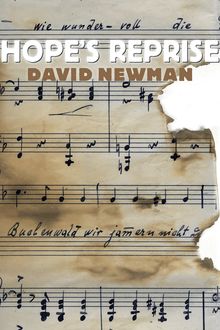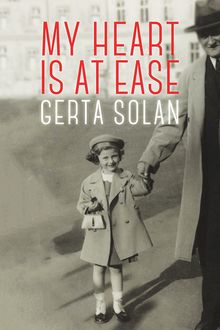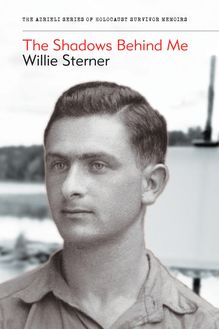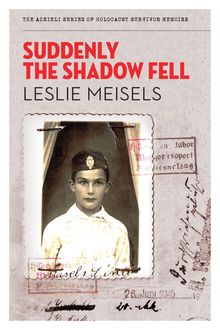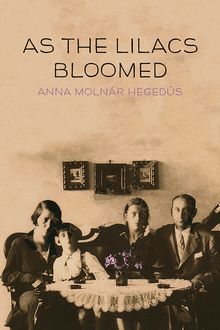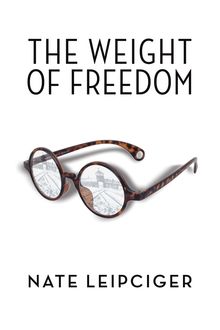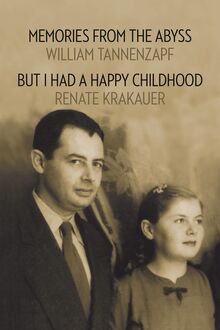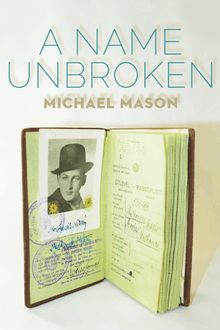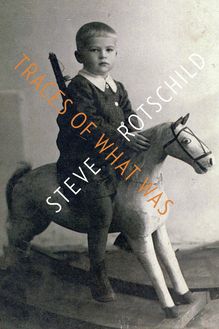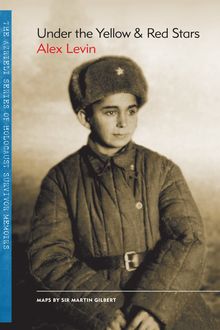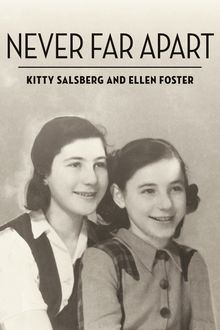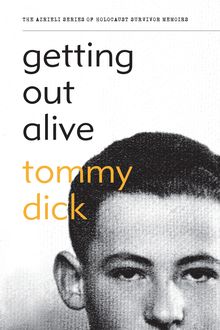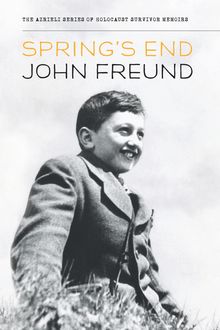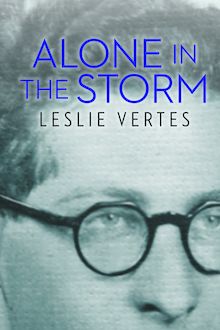We Sang in Hushed Voices , livre ebook
74
pages
English
Ebooks
2014
Vous pourrez modifier la taille du texte de cet ouvrage
Obtenez un accès à la bibliothèque pour le consulter en ligne En savoir plus
Découvre YouScribe en t'inscrivant gratuitement
Découvre YouScribe en t'inscrivant gratuitement
74
pages
English
Ebooks
2014
Vous pourrez modifier la taille du texte de cet ouvrage
Obtenez un accès à la bibliothèque pour le consulter en ligne En savoir plus
Publié par
Date de parution
01 septembre 2014
Nombre de lectures
0
EAN13
9781897470824
Langue
English
Poids de l'ouvrage
2 Mo
Publié par
Date de parution
01 septembre 2014
Nombre de lectures
0
EAN13
9781897470824
Langue
English
Poids de l'ouvrage
2 Mo
We Sang in Hushed Voices
Helena Jockel
The Azrieli Series of Holocaust Survivor Memoirs
INTERNATIONAL ADVISORY COUNCIL
Doris Bergen, Chancellor Rose and Ray Wolfe Chair in Holocaust Studies, University of Toronto
Sara R. Horowitz, Director of the Israel and Golda Koschitzky Centre for Jewish Studies, York University
Nechama Tec, Professor Emerita of Sociology, University of Connecticut
Avner Shalev, Chairman of the Yad Vashem Directorate, Jerusalem
Naomi Azrieli, Publisher
Andrea Knight, Managing Editor
Jody Spiegel, Program Director
Arielle Berger, Editor
Elizabeth Lasserre, Senior Editor, French-Language Editions
Aurélien Bonin, Assistant Editor / Researcher, French-Language Editions
Elin Beaumont, Educational Outreach and Communications
Tim MacKay, Social Media and Marketing
Susan Roitman, Executive Coordinator (Toronto)
Mary Mellas, Executive Coordinator (Montreal)
Michaela Ryan, Program Assistant
Mark Goldstein, Art Director
Nicolas Côté, Layout, French-Language Editions
François Blanc, Cartographer
Contents
The Azrieli Series of Holocaust Survivor Memoirs
Series Preface: In their own words...
About the Glossary
Introduction
Author’s Preface
My Mukacevo
From Freedom to Slavery
Auschwitz: A Journey to Hell
Two Hours
Survival
The Death March
Some Place Called Home
Steps Toward a New Life
From Communism to Canada
Epilogue: Transmitting Lessons
Glossary
Photographs
Series Preface: In their own words...
In telling these stories, the writers have liberated themselves. For so many years we did not speak about it, even when we became free people living in a free society. Now, when at last we are writing about what happened to us in this dark period of history, knowing that our stories will be read and live on, it is possible for us to feel truly free. These unique historical documents put a face on what was lost, and allow readers to grasp the enormity of what happened to six million Jews – one story at a time.
David J. Azrieli , C.M., C.Q., M.Arch
Holocaust survivor and founder, The Azrieli Foundation
Since the end of World War II , over 30,000 Jewish Holocaust survivors have immigrated to Canada. Who they are, where they came from, what they experienced and how they built new lives for themselves and their families are important parts of our Canadian heritage. The Azrieli Foundation’s Holocaust Survivor Memoirs Program was established to preserve and share the memoirs written by those who survived the twentieth-century Nazi genocide of the Jews of Europe and later made their way to Canada. The program is guided by the conviction that each survivor of the Holocaust has a remarkable story to tell, and that such stories play an important role in education about tolerance and diversity.
Millions of individual stories are lost to us forever. By preserving the stories written by survivors and making them widely available to a broad audience, the Azrieli Foundation’s Holocaust Survivor Memoirs Program seeks to sustain the memory of all those who perished at the hands of hatred, abetted by indifference and apathy. The personal accounts of those who survived against all odds are as different as the people who wrote them, but all demonstrate the courage, strength, wit and luck that it took to prevail and survive in such terrible adversity. The memoirs are also moving tributes to people – strangers and friends – who risked their lives to help others, and who, through acts of kindness and decency in the darkest of moments, frequently helped the persecuted maintain faith in humanity and courage to endure. These accounts offer inspiration to all, as does the survivors’ desire to share their experiences so that new generations can learn from them.
The Holocaust Survivor Memoirs Program collects, archives and publishes these distinctive records and the print editions are available free of charge to libraries, educational institutions and Holocaust-education programs across Canada. They are also available for sale to the general public at bookstores.
The Azrieli Foundation would like to express appreciation to the following people for their invaluable efforts in producing this book: Carolyn Ferstman Condé, Sherry Dodson (Maracle Press), Sir Martin Gilbert, Jana Jockel, Pavel Jockel, Matias Kallio, Farla Klaiman, Zvika Oren from the Ghetto Fighters' House Museum, Mia Spiro, Keaton Taylor, Caroline Waddell of the US Holocaust Memorial Museum, and Margie Wolfe and Emma Rodgers of Second Story Press.
About the Glossary
The following memoir contains a number of terms, concepts and historical references that may be unfamiliar to the reader. For information on major organizations; significant historical events and people; geographical locations; religious and cultural terms; and foreign-language words and expressions that will help give context and background to the events described in the text, please see the Glossary .
Introduction
“I still believe that people are really good at heart”
– Helena Jockel’s journey.
When Helena Jockel begins her memoir with a chapter entitled “My Mukačevo” she is not referring to yet another dot on a variegated map of Europe. This is the town where Helena was born – what she calls “my” place – the memory of which still tugs at her heartstrings. A hundred and thirty kilometres east of Mukačevo lies Sighet, a town in present-day Romania, which is the birthplace of Nobel Peace Prize laureate and Holocaust survivor Elie Wiesel. Just a little further is Czernovitz, in present-day Ukraine, where Paul Celan, another Holocaust survivor and the greatest contemporary poet of the German language, penned his first poems. Yet despite its illustrious sons, we know very little about Jewish life in this remote part of Eastern Europe, tucked between the Carpathian Mountains and the Hungarian plains. The first chapters of Helena’s memoir give us a precious glimpse into that life.
Lying directly at the juncture of several countries, the Subcarpathian region was ruled by a succession of governments, and the changes are reflected in the variety of its place names. One of the scholars researching the region cites the following humorous quotation:
It is possible to:
Have been born in Austria-Hungary,
Have been married in Czechoslovakia,
Have given birth in Hungary,
Have lived with your family in the Soviet Union,
Reside currently in Ukraine …
And never have left the city of Mukacheve. 1
Helena’s Mukačevo was called Munkács in Hungarian and Mukachevo (Мукачево) in Ukrainian. In the second half of the nineteenth century, Subcarpathia belonged to the Austro-Hungarian Empire, but, after World War I and the Peace Treaty of Versailles, it became part of the newly created country of Czechoslovakia. Following Adolf Hitler’s rise to power, Mukačevo was annexed by Hungary, an ally of Nazi Germany, as a result of the 1938 Munich Agreement. 2 In 1944, Germany broke off its pact with Hungary and invaded the country and all the territories under its rule. Within three months, all of the Subcarpathian region was made judenrein (free of Jews). 3 After the war, the territory was included in the Ukrainian part of the Soviet Union and was Russianized. Today, Helena’s hometown is a city in southwestern Ukraine, and very few Jews live there now. The entire Jewish way of life in the region is no more.
Before the war, Mukačevo was home to the largest Jewish community in Subcarpathia. Established in the first half of the eighteenth century, it boasted synagogues, schools, printing presses and other institutions that helped foster a rich and vibrant Jewish culture. The Jews of Mukačevo contributed to the colourful social fabric of the town and comprised a spectrum of social and religious mores, professions, levels of education and political affiliations. On the eve of World War II , many were deeply religious Hasidim , led by the ultra-Orthodox rabbis who favoured isolation from the rest of the world. At the same time, the number of Jews who embraced modernization, Zionism and assimilation was growing, and a high percentage of the intelligentsia, professionals and artists were Jewish. Some were social reformers and others joined clandestine political organizations, such as Helena’s older brother, Chaim, who became a member of the outlawed Communist Party. Helena’s mother, kind and open-minded, favoured social change and strongly supported her children’s aspirations for secular learning.
Helena describes Mukačevo as a multicultural and religious mosaic, with Jews (who made up more than 40 per cent of its population of 20,000), Carpatho-Ruthenians, Magyars, Ukrainians, Roma, Czechs, Slovaks, Poles and Germans living side by side in relative harmony. Today, the only traces of this polyglot mix can be found in expatriate places such as Helena’s living room in Halifax, Nova Scotia, where she effortlessly switches from Czech to Hungarian to Russian, though she is also fluent in German, Hebrew and English. During the Holocaust, this ability to communicate in different languages was a major factor in Helena’s survival.
Helena’s parents owned a bakery, though it was not a prosperous business due to her father’s illness and his eventual death in 1939. Helena was one of eight children, four girls and four boys, and she reminisces lovingly about her talented siblings, of whom only three would survive the Holocaust. It was Helena’s brother Chaim, a brilliant and rebellious young man, who nourished her passion for reading and learning. Helena attended a prestigious Hebrew Gymnasium , whose founder and principal, Dr. Chaim Kugel, was a gifted pedagogue as well as the Jewish Party delegate to the Czechoslovak Parliament. The Gymnasium a
